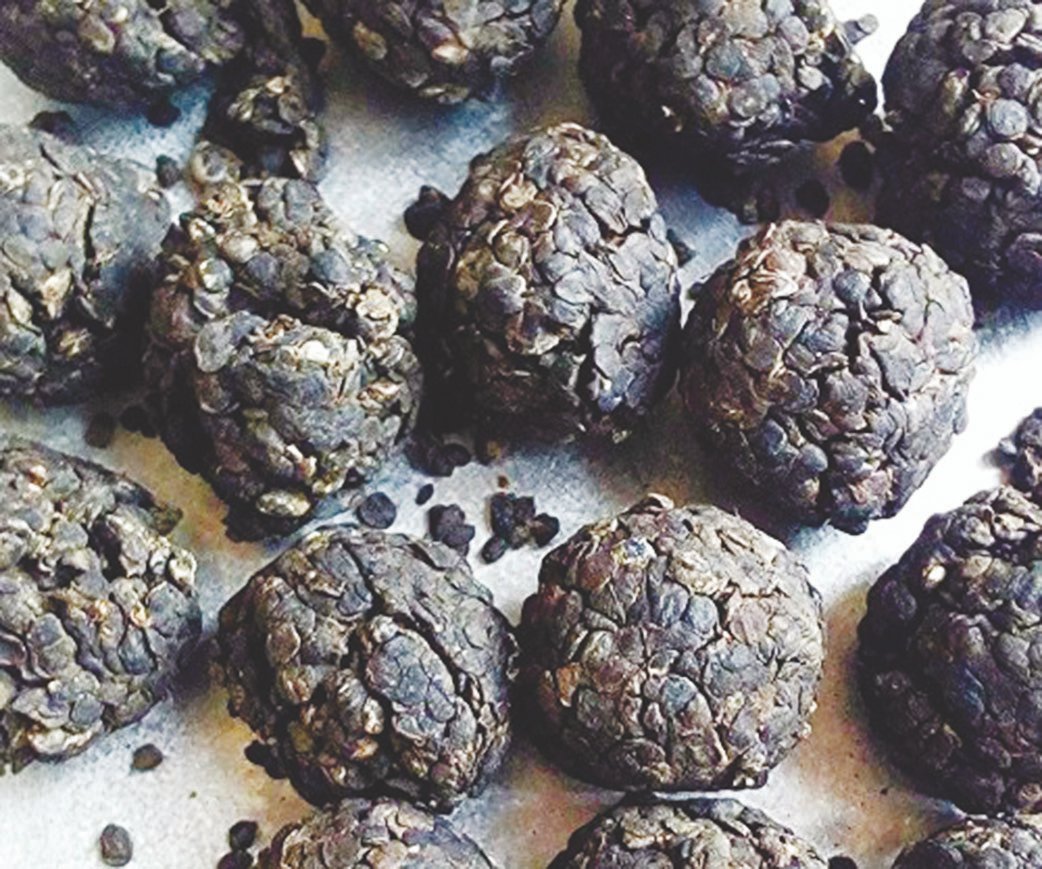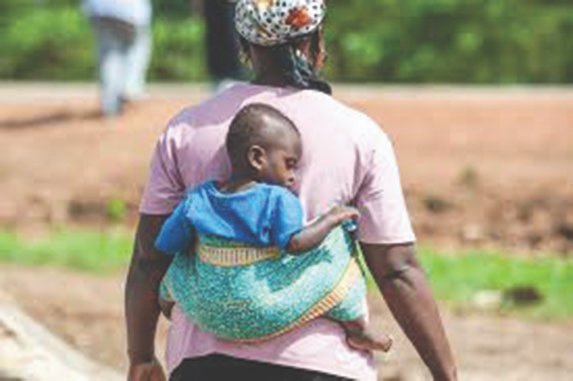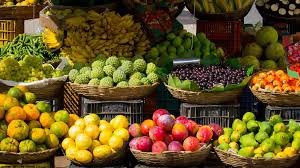Nutrition
Benefits of Dawada

The African Locust bean, commonly referred to as “Dawadawa” by Ghanaians is a local seasoning used in soups and stews. It is rich in diverse nutrients and has great health benefits to Africans who consume it.
-Good vision
Due to the natural ingredients and nutrients found in the African locust bean, it makes it therefore one of the best treatments of bad vision and eye issues such as Myopia, Cataract and even minus eyes.
-It can treat stroke
Stroke is caused when the blood supply to the brain is suddenly obstructed by any substance which is fatal and dangerous to the health of individuals.
Research shows that consuming a good amount of African locust beans will definitely help you against such sickness.
-Reduces cholesterol
Cholesterol can cause blockage within the blood vessels thereby reducing the flow of blood to the heart which will definitely lead to heart issues. Eating locust beans can help your body burn the amount of cholesterol found in our bodies.
-Treat Diarrhoea
Due to the amount of tannin found in the African locust beans, it can cure diarrhoea, which is a gastrointestinal disorder with the symptoms of frequent watery bowel movements. Consuming African locust beans will help relieve you of diarrhoea
-Treat hypertension
Hypertension also referred to as high blood pressure is a long-term medical condition in which the blood pressure in the arteries is persistently increasing above the normal level. Therefore consuming a good amount of African Locust beans will help people with hypertension.
-Helps control blood sugar level
The human body requires sugar to produce enough energy but it should be stable otherwise if unstable, it will cause diabetes. Therefore consuming African locust beans will help you control blood sugar level.
-Improve digestion
Eating a good amount of African locust beans can improve digestion. Good digestion will give you a healthy body as the excretion process in the body will be facilitated which will prevent constipation.
-Healthy weight
Underweight is not healthy and vice-versa. It is not easy to have normal weight or for the underweight to gain weight. Eating African locust bean will help you gain weight in a natural way.
-Heal Wounds
As mentioned above it can be used to treat ulcer wounds internally as well as external wounds. The leaves when pounded can be applied on wounds and the beans can be put on the wound to heal the wounds.
-Reduce Fever
Consuming a good amount of African locust beans can reduce fever. It was traditionally used to reduce high fever which is still practiced in some rural African communities and also send away evil spirits because of its unpleasant smell.
African locust beans is one of the best gift of God to Africans but sadly, only a few see this, it consist of many vital nutrients which are cherished by the body. Therefore regular consumption of healthy African locust beans will give you good health
Source: https://gh.opera.news
Nutrition
The First 1,000 Days: Why Ghana’s investment in maternal and child nutrition matters for human capital development

From the start of pregnancy to a child’s second birthday, the first 1,000 days, represents the most important window for human development. Good nutrition shapes the foundation.
During this short window, the body and brain grow at a pace that will never be repeated. When nutrition is inadequate, the damage to physical growth and cognitive development is often permanent. No later investment in education or healthcare can fully reverse these losses. Ghana’s future workforce and economic progress depend on getting nutrition right during this critical period.
Science is clear. A baby’s brain develops rapidly during pregnancy and early childhood, forming the foundation for all future learning and health. Adequate nutrients during pregnancy support the formation of neural connections that underpin learning, memory, and emotional regulation. When pregnant women lack essential nutrients, their babies begin life at a disadvantage. When young children experience severe malnutrition, they miss critical growth periods that do not return.
Ghana faces serious challenges during this critical window. An estimated 68,517 children suffer from severe acute malnutrition. Between 37 and 63 percent of pregnant women are anemic, with iron deficiency particularly common in late pregnancy. These problems translate directly into diminished potential. Malnourished children perform worse in school, earn less as adults, and face higher risks of chronic diseases. The economic losses multiply across generations.
Research worldwide shows that nutrition investments during the first 1,000 days deliver exceptional returns. Well-nourished children learn better, perform better academically, and become more productive adults. Countries that invest in early nutrition experience faster economic growth through stronger, more productive workforces.
Ghana already has effective solutions. Multiple Micronutrient Supplements for pregnant women reduce the risk of low birth weight and preterm birth, while Ready-to-Use Therapeutic Food enables high recovery rates for children with severe acute malnutrition. Both are approved in Ghana’s health guidelines. The problem is not lack of knowledge but lack of access. Coverage remains limited because financing depends heavily on donor support rather than sustainable domestic systems.
Integrating these nutrition interventions into the National Health Insurance Scheme would help close this gap. With a large proportion of mothers and young children already enrolled, NHIS provides a platform for nationwide reach. Recent reforms to health financing further strengthen the case for prioritising essential nutrition services within the scheme.
Ghana’s development agenda emphasizes industrialisation, innovation, and economic transformation. Achieving these goals requires a workforce capable of learning, problem-solving, and sustained productivity. Human capital development, however, does not begin at universities or training centers. It begins before birth.
The first 1,000 days offer no second chances. Each year of delay means another group of children enter adulthood carrying preventable disadvantages. Investing in nutrition during this critical window is not only a health priority; it is a foundational investment in Ghana’s economic future.
Feature article by Womec, Media and Change under its Nourish Ghana: Advocating for Increased Leadership to Combat Malnutrition project
Join our WhatsApp Channel now!
https://whatsapp.com/channel/0029VbBElzjInlqHhl1aTU27

Nutrition
Importance of Fruits During Ramadan

Ramadan, the ninth month of the Islamic lunar (Hijri) calendar, is a period of fasting, reflection, and spiritual growth. A vital part of observing Ramadan is Iftar—the evening meal with which Muslims break their daily fast at sunset. Fruits play an essential role in Iftar, providing nutrition, hydration, and energy after long hours of fasting.
Here are some of the most recommended fruits to include in your Ramadan meals:
Dates
Dates are traditionally used to break the fast. They are rich in sugar, fibre, potassium, vitamins, and minerals, helping to restore energy quickly after fasting.
Watermelon
Watermelon is highly consumed for hydration, as it is composed mostly of water. It can be enjoyed in slices or blended into refreshing smoothies.
Bananas
Bananas are an excellent source of potassium, which helps maintain fluid balance and reduce thirst. They also provide natural energy to keep you going after fasting.
Apples
Apples are fibre-rich and nutritious, promoting heart health, aiding weight management, and improving digestion.
Cucumber
Cucumber is one of the best hydrating fruits, composed of water and fibre, which aids digestion while revitalising the body.
Pawpaw (Papaya)
Pawpaw is low in calories and sugar, rich in fibre, and promotes healthy digestion, hair, and skin. It is a nutritious addition to any Iftar meal.
Including a variety of these fruits during Ramadan not only helps replenish lost nutrients but also supports overall health, digestion, and hydration throughout the fasting period.
By Linda Abrefi Wadie
Join our WhatsApp Channel now!
https://whatsapp.com/channel/0029VbBElzjInlqHhl1aTU27







